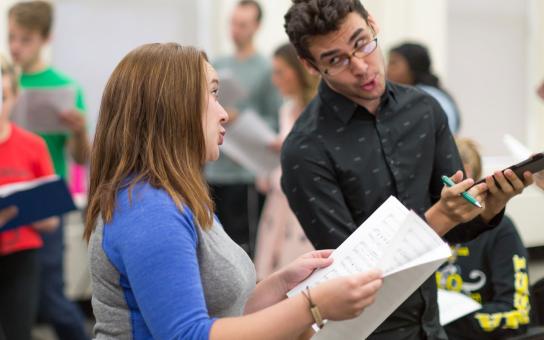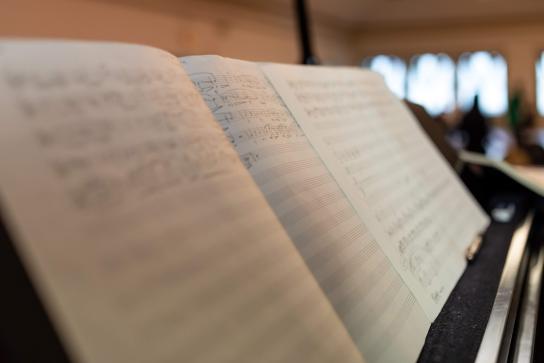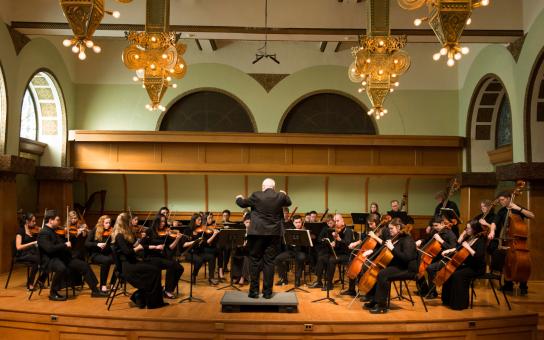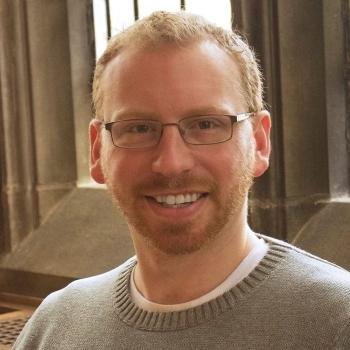Bachelor’s in Music Education, BM
The Music Education program prepares students for a career in K-12 music education through coursework in musicianship, performance, teaching methodology and professional education, and general studies.
Why Roosevelt for your Bachelor's in Music Education

Comprehensive Musical Training
Located in the heart of downtown Chicago, CCPA’s music education program has been a nurturing space for quality teachers for several decades. Music education majors at Roosevelt University are given the opportunity to engage the best of theory and practice with caring, knowledgeable faculty and opportunities for preservice teaching practice.

An Arts Education in the Heart of Chicago
Students engage the Roosevelt University mission of social justice through focused pedagogy, scholarship and activism. Students study with unparalleled applied studio faculty, all of whom are experienced master performers. Many of our artist faculty perform with the Chicago Symphony Orchestra and Lyric Opera: world-class organizations just blocks from CCPA.

Prepare for your career
This degree includes the full complement of Music Education, Core Musicianship, Professional Education and General Studies courses that are currently required for CCPA teacher licensure programs in the state of Illinois— ensuring the opportunity for employability after graduation. You’ll learn piano accompaniments, vocal warmups and choral arrangements for school repertory numbers so that you’re immediately prepared for your first semester as a teacher.
“What makes the Music Education program special is access to both active and retired music teachers, small class sizes and the wide-range teaching experiences in urban and suburban schools. Most importantly, CCPA instilled in me a passion for music education that continues to guide me today.”
Anthony Soyak
Music Curriculum Specialist, Milwaukee Public Schools
